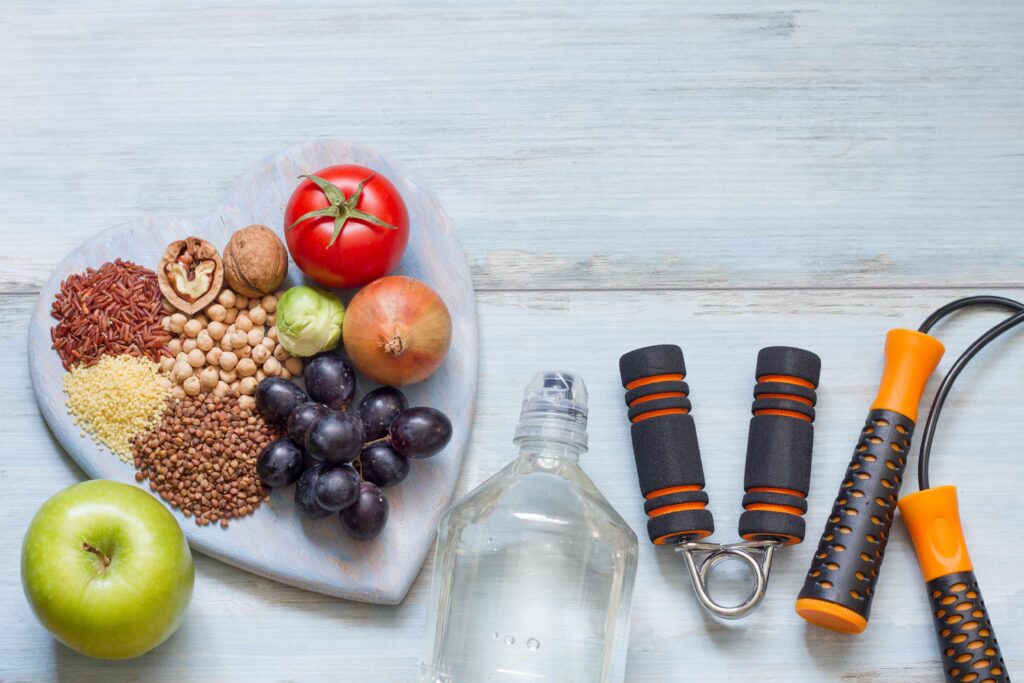Are you tired of crash diets and endless hours at the gym with little to show for it? It’s time to ditch the fads and transform your diet for effective fat loss that lasts.
In this article, we’ll dive into the world of nutrition and uncover the key strategies you need to revamp your eating habits, shed unwanted pounds, and achieve your dream body.
Say goodbye to deprivation and hello to a sustainable approach to fat loss that leaves you feeling energized, satisfied, and ready to take on the world.

Understanding the Basics of Fat Loss
Before we delve into the specifics of diet transformation, let’s first understand the basics of fat loss.
At its core, fat loss is about creating a calorie deficit – consuming fewer calories than your body expends – which forces your body to tap into its fat stores for energy.
While exercise plays a crucial role in burning calories, the foundation of successful fat loss lies in your diet.
By making smart food choices and controlling portion sizes, you can tip the scales in your favor and achieve sustainable fat loss results.
Embracing Whole, Nutrient-Dense Foods
When it comes to transforming your diet for fat loss, the quality of your food choices matters just as much as the quantity.
Instead of focusing on calorie counting or restricting certain food groups, shift your focus to whole, nutrient-dense foods that nourish your body and support your fat loss goals.
Think colorful fruits and vegetables, lean proteins, healthy fats, and complex carbohydrates – foods that are rich in vitamins, minerals, and antioxidants to fuel your body and optimize your metabolism.
Balancing Macronutrients for Optimal Results
To fuel your fat loss journey, it’s essential to strike the right balance of macronutrients – protein, carbohydrates, and fats – in your diet.
Protein plays a crucial role in preserving lean muscle mass and promoting satiety, while carbohydrates provide energy for your workouts and daily activities.
Meanwhile, healthy fats are essential for hormone production and nutrient absorption.
By prioritizing protein-rich foods, incorporating complex carbohydrates, and including sources of healthy fats in each meal, you can optimize your nutrient intake and support fat loss.

Portion Control and Mindful Eating
In addition to choosing the right foods, portion control and mindful eating are key components of a successful fat loss diet.
Paying attention to portion sizes and listening to your body’s hunger and fullness cues can help prevent overeating and promote a healthy relationship with food.
Practice mindful eating by savoring each bite, chewing slowly, and tuning in to your body’s signals of hunger and satisfaction.
By eating with intention and awareness, you can avoid mindless snacking and make more mindful food choices that support your fat loss goals.
Incorporating Strategic Meal Timing
While meal timing may not be as critical as once thought, strategic meal timing can still play a role in optimizing fat loss results.
Aim to eat regular, balanced meals and snacks throughout the day to keep your metabolism revved up and prevent energy crashes.
Consider spreading your calories evenly throughout the day, with larger meals around workouts to fuel your activity and smaller, nutrient-dense snacks to keep hunger at bay between meals.
Experiment with meal timing to find what works best for your body and lifestyle.
Hydrating for Success
Don’t overlook the importance of hydration when it comes to fat loss.
Drinking an adequate amount of water not only helps to keep you hydrated and energized but also supports your body’s natural detoxification processes and aids in digestion.
Aim to drink at least eight glasses of water per day, and consider incorporating hydrating foods like fruits and vegetables into your meals and snacks.
Herbal teas and infused water are also great options to add flavor and variety to your hydration routine.
Conclusion: A Sustainable Approach to Fat Loss
Transforming your diet for effective fat loss is not about deprivation or extreme measures – it’s about making sustainable lifestyle changes that you can maintain for the long haul.
By focusing on whole, nutrient-dense foods, balancing macronutrients, practicing portion control and mindful eating, incorporating strategic meal timing, and staying hydrated, you can create a diet that supports your fat loss goals while nourishing your body from the inside out.
So say goodbye to crash diets and hello to a healthier, happier you!

FAQs:
Is it necessary to count calories for fat loss?
While calorie counting can be a helpful tool for some people, it’s not necessary for everyone.
Instead of focusing solely on calories, prioritize nutrient-dense foods, portion control, and mindful eating to support your fat loss goals.
Can I still enjoy my favorite foods while trying to lose fat?
Absolutely! The key is moderation and balance.
You don’t have to give up your favorite foods entirely, but rather enjoy them in moderation as part of a balanced diet that prioritizes whole, nutrient-dense foods.
How long does it take to see results from a fat loss diet?
The timeline for fat loss results varies from person to person and depends on factors like starting weight, diet and exercise habits, and metabolism.
With consistency and patience, you can expect to see noticeable results within a few weeks to a few months.
Should I avoid carbohydrates for fat loss?
Carbohydrates are an important source of energy for your body, especially if you’re active or engage in regular exercise.
Instead of avoiding carbohydrates altogether, focus on choosing complex carbohydrates like whole grains, fruits, and vegetables, and be mindful of portion sizes.
How can I stay motivated on my fat loss journey?
Staying motivated on your fat loss journey requires setting realistic goals, tracking your progress, finding accountability partners, and celebrating small victories along the way.
Remember that fat loss is a marathon, not a sprint, and consistency is key to long-term success.
